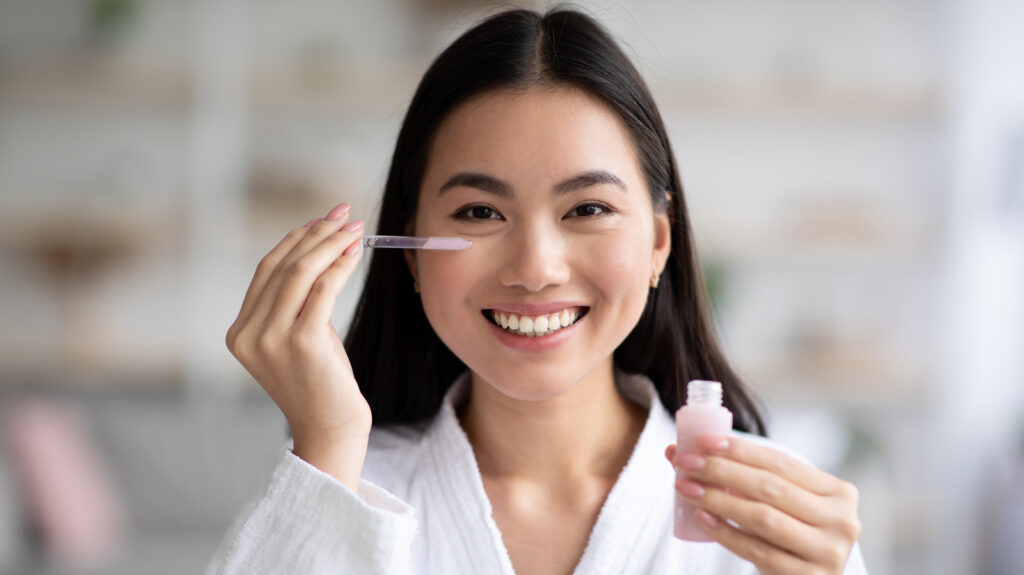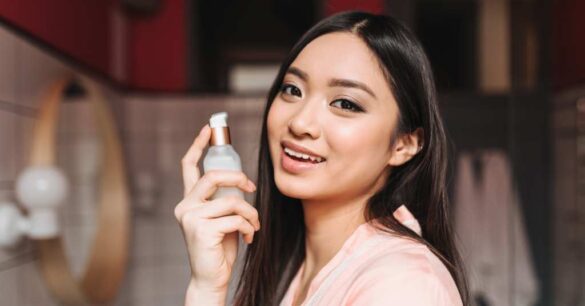If you’ve ever wanted to bring a little more glow, smoothness, or youthfulness to your skin, chances are you’ve heard of retinol. But while it’s a skincare superhero, not all retinol serums are created equal—especially if you have sensitive skin. The good news? The best retinol serum doesn’t have to burn, flake, or irritate. In fact, some of the most effective products out there are also surprisingly gentle.
Today, we’re diving into the five best retinol serums that not only work but also respect your skin’s boundaries. Whether you’re just starting your retinol journey or looking for a formula that won’t cause redness, this guide is for you.
Why retinol is worth the hype
Retinol, a vitamin A derivative, has been studied for decades and remains one of the most powerful over-the-counter ingredients in dermatology. It works by speeding up cell turnover, boosting collagen production, and preventing clogged pores. The results? Fewer breakouts, smoother texture, and a visible reduction in fine lines and wrinkles.
But there’s a catch—retinol can also cause peeling, dryness, and irritation, especially when used in high concentrations or combined with other active ingredients. That’s why choosing the right formulation is so crucial, particularly if you have sensitive or reactive skin.
What makes a retinol serum gentle yet effective
The best retinol serum balances performance with comfort. Instead of using high concentrations that shock the skin, these formulas are carefully crafted to deliver results over time without inflammation. A well-formulated retinol serum often includes hydrating and calming ingredients like hyaluronic acid, niacinamide, ceramides, and botanical extracts. These extras help buffer the potency of retinol, making it suitable for even the most delicate skin types.
Another thing to consider is the type of retinoid used. Some serums use pure retinol, while others opt for derivatives like retinyl palmitate or encapsulated retinol. These alternatives tend to be slower-releasing and gentler on the skin barrier.
Best Retinol Serum: 5 Options That Actually Work Without Irritating Your Skin
After carefully evaluating dozens of formulas and user reviews, here are five standout serums that get results without pushing your skin to its breaking point.
1. CeraVe Resurfacing Retinol Serum – Best for Beginners
CeraVe’s formula is a go-to for first-time retinol users. It’s lightweight, fragrance-free, and includes niacinamide to help reduce redness and support the skin’s natural barrier. The encapsulated retinol technology means it releases gradually, lowering the risk of irritation. Plus, it includes ceramides to replenish moisture, which is essential when starting retinol. It’s affordable, widely available, and consistently recommended by dermatologists.
2. La Roche-Posay Retinol B3 Serum – Best for Sensitive Skin
This serum is a masterclass in gentle skincare. It combines a moderate level of retinol with vitamin B3 (niacinamide), which soothes and strengthens the skin barrier. What makes it stand out is the addition of glycerin and thermal spring water, both of which help calm inflamed or red skin. It absorbs beautifully and is a favorite among people who’ve struggled with irritation in the past.
3. Paula’s Choice 0.3% Retinol + 2% Bakuchiol Treatment – Best Balanced Formula
This product blends 0.3% retinol with bakuchiol—a plant-based alternative known for its anti-aging effects without the harshness. It’s a great pick if you’re looking for visible results without the flaking and peeling. It also includes peptides and antioxidants that support long-term skin health. The creamy texture feels nourishing and layers well under moisturizer.
4. The Ordinary Retinol 0.2% in Squalane – Best Budget-Friendly Option
The Ordinary has earned a reputation for delivering science-backed skincare at a fraction of the price, and this retinol is no exception. At just 0.2% concentration, it’s ideal for ultra-sensitive or reactive skin. The squalane base adds an extra boost of hydration and reduces the drying effect of retinol. While it may not deliver overnight miracles, it builds tolerance and results steadily and gently.
5. Olay Regenerist Retinol24 Night Serum – Best for Mature Skin
This serum combines retinol with niacinamide and peptides, offering a triple-threat approach to aging concerns. It targets deep wrinkles, uneven skin tone, and texture, all while delivering 24-hour hydration. Despite being strong in performance, the formula feels incredibly smooth and calming. Users with mature or dry skin often find it helps restore a youthful glow without the side effects of harsher products.

How to use retinol without irritating your skin
Even the best retinol serum can cause issues if not used correctly. The secret lies in how you apply it and how often.
Start by using your serum two to three times a week. Always apply it to dry skin after cleansing, and follow up with a nourishing moisturizer. If your skin feels tight, use the “moisturizer sandwich” method: moisturize first, apply your retinol, and then moisturize again.
Never combine retinol with exfoliating acids (like AHAs or BHAs) on the same night. And most importantly, use sunscreen every day—retinol can make your skin more vulnerable to sun damage.
How long before you see results?
With consistent use, many people notice subtle improvements within 4 to 6 weeks. But the best results often appear after 12 weeks or more. It’s not an instant fix, but rather a long-term investment in your skin’s health. If you’re patient and consistent, the payoff is often worth the wait.
If, however, you experience burning, persistent redness, or peeling that doesn’t improve, it may be time to take a break or try a different formulation.
What Does a Retinol Serum Actually Do?
Retinol is a form of Vitamin A that speeds up cell turnover and boosts collagen production. It helps fade dark spots, smooth out fine lines, unclog pores, and improve overall skin tone. The best retinol serum works over time to reveal clearer, younger-looking skin — but patience is key.
Which Retinol Serum Is the Best?
This is a natural question — we all want the best results without irritation. The best retinol serum depends on:
- Your skin type (dry, oily, sensitive, combination)
- Your experience with actives
- The concentration of retinol (more on this below)
Look for a product with added ingredients like niacinamide, hyaluronic acid, or ceramides. These help reduce dryness or redness while retinol works its magic.
What Strength Retinol Should I Start With?
Start Low, Go Slow
If you’re new to retinol, start with 0.25% or 0.3%. Sensitive skin users should even begin with retinyl palmitate or encapsulated retinol, which are gentler.
Once your skin builds tolerance (usually in 6–12 weeks), you can move up to 0.5% or even 1% — but only if needed.
Are There Any Side Effects?
Yes, But They’re Manageable
In the beginning, you might experience:
- Dryness or flaking
- Slight redness
- Purging (temporary acne)
These are normal and usually go away as your skin adjusts. If irritation persists, try using retinol every other night or buffer it with a moisturizer.
When and How Should I Apply Retinol Serum?
A Simple Night-Time Routine
Retinol is best used at night, because it breaks down in sunlight. Here’s how to apply it:
- Cleanse your face gently.
- Wait 5-10 minutes (on a dry face).
- Apply a pea-sized amount of retinol serum.
- Follow up with a soothing moisturizer.
- Never skip sunscreen the next morning.
This routine helps avoid irritation and supports skin repair while you sleep.
Can I Use Retinol During Pregnancy or Breastfeeding?
No — It’s Not Recommended
Dermatologists and doctors advise against using retinol or any vitamin A derivatives during pregnancy or breastfeeding. Look for bakuchiol or rosehip oil as safe, natural alternatives that offer similar benefits.
Are Natural Retinol Alternatives Effective?
Yes, But They’re Not as Strong
Natural ingredients like bakuchiol, rosehip seed oil, and algae extract mimic the effects of retinol without causing dryness or irritation. They’re great for:
- Sensitive skin types
- Pregnant or breastfeeding women
- People looking for a more holistic skincare routine
However, they typically take longer to show results compared to true retinol.
What Age Should I Start Using a Retinol Serum?
Mid to Late 20s Is a Good Time
Most dermatologists suggest starting a low-dose retinol in your mid to late 20s. This helps prevent early signs of aging. If you’re already in your 30s or 40s, it’s not too late — retinol still works wonders for:
- Wrinkles
- Sun damage
- Uneven texture
The earlier you start (with proper care), the better your skin ages.
Is Retinol Serum Safe for Oily or Acne-Prone Skin?
Yes — In Fact, It’s One of the Best Treatments
Retinol helps reduce oil production and unclogs pores, making it ideal for acne-prone skin. It also fades post-acne marks and smooths out bumpy texture.
Start with a gentle formula to avoid initial dryness, and don’t forget to hydrate. Over time, you’ll notice clearer and more balanced skin.
Do I Need to Use Sunscreen with Retinol?
Absolutely Yes — No Exceptions
Retinol makes your skin more sensitive to the sun. Without protection, you risk:
- Increased sunburn
- Pigmentation
- Reduced effectiveness of your serum
Apply broad-spectrum SPF 30 or higher every morning. Even on cloudy days, it’s a non-negotiable part of your skincare routine when using any retinol product.
Final thoughts: Choose what your skin needs, not what’s trending
The best retinol serum isn’t the most expensive or the strongest—it’s the one your skin tolerates and responds to over time. Everyone’s skin is unique, and finding your ideal product may take a little trial and error. But once you do, it can make a remarkable difference in how your skin looks and feels.
When shopping for a retinol serum, keep in mind your skin type, your experience with actives, and the support ingredients in the formula. With the right product and a little patience, retinol can be one of the most rewarding steps in your skincare journey.
FAQs: Best Retinol Serum
Is retinol safe for daily use?
If your skin can tolerate it, yes—but it’s better to start slow. Use it 2–3 times per week initially, then gradually increase frequency if there’s no irritation.
Can I use retinol with other active ingredients?
Avoid mixing it with strong acids or vitamin C in the same routine. Pairing it with hydrating and barrier-repair ingredients is ideal.
What age should I start using retinol?
Many people begin in their mid-20s to early 30s for prevention, but it’s helpful at almost any age if you’re targeting acne, fine lines, or dullness.
Is it normal to break out when starting retinol?
Some people experience “purging” in the beginning. This is temporary and usually subsides within a few weeks.
Should I stop using retinol if my skin feels dry?
Mild dryness can be normal at first, but if it becomes uncomfortable, reduce frequency or switch to a lower-strength formula.
